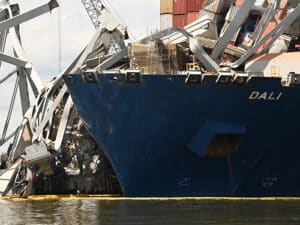
DNV GL issues white paper on alternate fuels
Written by Nick Blenkey
APRIL 17, 2018 — A new white paper from classification society DNV GL is intended to help the shipping industry prepare for the Global Sulfur Cap on marine fuels set to come into effect on January 1, 2020.
Entitled “Alternative fuels and technologies for greener shipping.” It examines the price, availability, regulatory challenges and environmental benefits of alternative fuels and technologies, including LNG, LPG, hydrogen, fuel cells, and hybrid and battery technologies, and compares them to the use of conventional fuel with scrubbers and new low sulfur alternatives.
“The incoming International Maritime Organization (IMO) sulfur cap on emissions from shipping could have a significant effect on the maritime industry, and it has the potential to be a game changer for alternative fuels,” says Trond Hodne, Senior Vice President, Sales & Marketing Director at DNV GL – Maritime. “Our new white paper is designed to set out the options for interested stakeholders and to offer a balanced assessment of the potential of these fuels and technologies going forward. We hope that by doing so we can add to the growing body of knowledge and enable investment decisions to be made with greater certainty and confidence.”
The technologies and fuels considered in the white paper are many of the most commonly used in the shipping industry today: LNG, LPG, methanol, biofuel, hydrogen, battery systems, fuel cell systems, and wind-assisted propulsion. The white paper identifies and examines the factors that will affect the uptake and acceptance of alternative fuels and technologies in shipping, including: environmental compatibility, availability, fuel costs and the international rules within the IGF Code. Over the short term, the white paper foresees that the vast majority of conventionally fueled vessels already in service will either switch to low sulfur conventional fuels, or implement a scrubber system while continuing to use heavy fuel oil (HFO).
For newbuilding vessels, the sulfur cap could be a major driver for alternative fuels, and DNV GL’s Gerd Würsig, Business Director Alternative fuelled ships, at DNV GL – Maritime, believes that LNG is the prime contender among them: “LNG has already overcome the barriers related to international legislation and is available in sufficient quantities today to meet the requirements of the shipping industry for many years. It also fits within the trend of demands to lower emissions of CO2, NOx and particulate matter. At the end of the day however, the best concept for a given application needs to be determined by the shipowner on a case-by-case basis, and at DNV GL we are ready to assist in finding the best solution.”
SUMMARY OF KEY FINDINGS
- The IMO decision to limit the sulfur content of ship fuel worldwide as of 1 January 2020 to 0.5 percent has the potential to be a game changer.
- There is an accelerating worldwide trend towards lower emissions of CO2, NOX and particles.
- DNV GL identified LNG, LPG, methanol, biofuel and hydrogen as the most promising alternative fuels for shipping.
- DNV GL believes battery systems, fuel cell systems and wind-assisted propulsion have reasonable potential for ship applications.
- As has been demonstrated by the DNV GL PERFECt Ship concept study, the wellknown combined cycle gas and steam turbine technology has good potential for ships in the power range above 30 MW, provided that low-sulfur fuels are widely used in shipping
- The major challenges for alternative fuels are related to environmental benefits, fuel availability in the quantities needed for shipping, fuel costs and the international rules within the IGF Code.
- Of all fossil fuels, LNG produces the lowest CO2 emissions.
- In a sustainable energy world where all energy is produced by regenerative CO2-neutral sources, hydrogen and CO2 will be the basis for fuel production.
- All propulsion concepts are capable of meeting the emission limits using any of the fuel alternatives.
- For international shipping, it should be noted that subsidies financed by taxes on fuel for preferred fuels do not exist because there is no taxation on ship fuels.
The full white paper or an executive summary can be downloaded HERE





Leave a Reply
You must be logged in to post a comment.